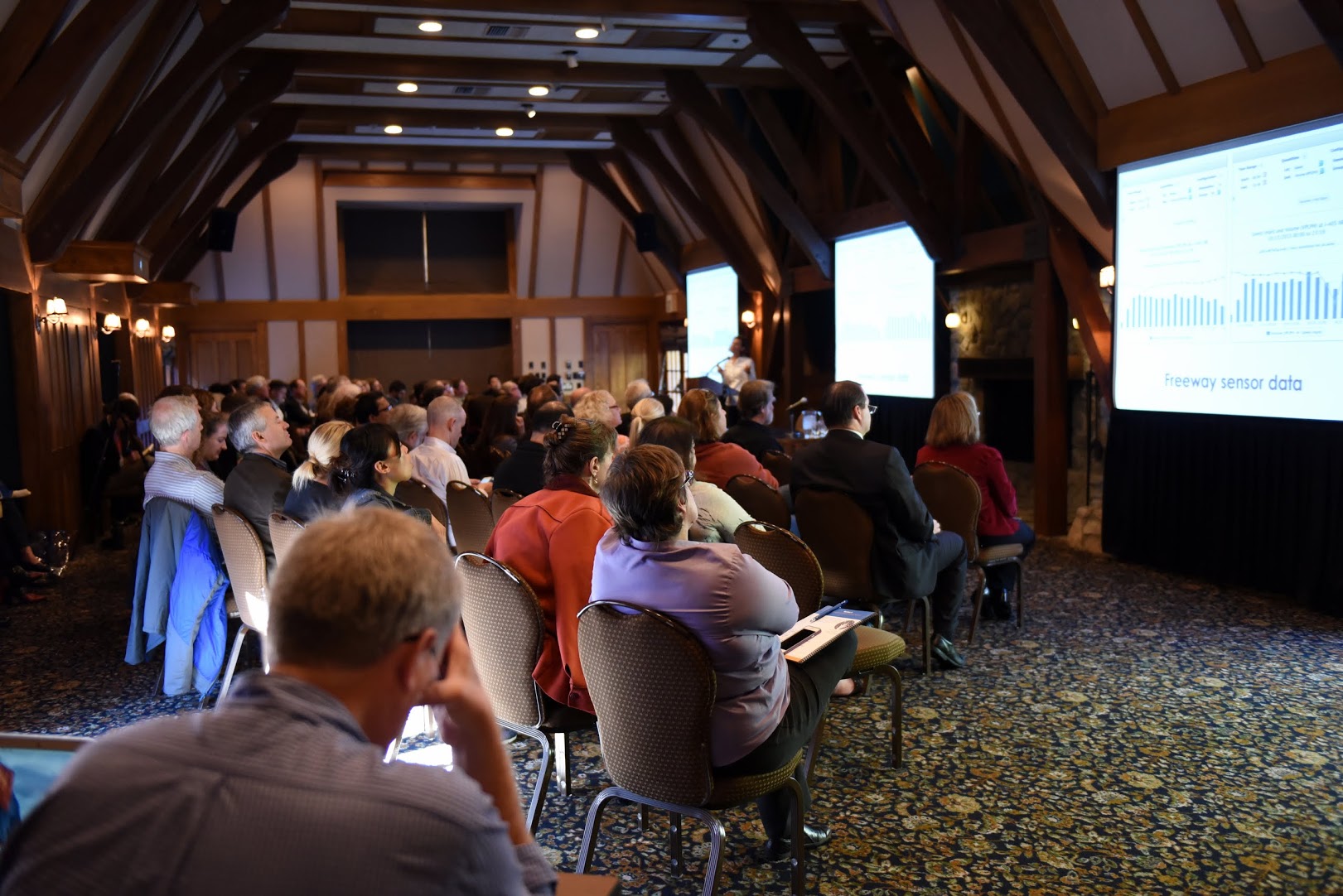The Monday afternoon panel on Managing Transportation Change brought together a unique group of transportation planning experts. Staying true to the Arrowhead theme, the panelists zeroed in on different elements of change in California’s growing transportation system, including infrastructure, policy, and management.
In 2013, Senate Bill 743 forever changed the way California agencies looked at automobile congestion under the California Environmental Quality Act. Fred Dock, Transportation Director at the City of Pasadena, kicked off the panel by reflecting on his experience implementing SB 743 in Pasadena. Dock, who brings over 35 years of transportation planning and engineering experience to the table, discussed the ups and downs that come with implementing such drastic changes at the municipal level, specifically focusing on changing congestion metrics from level of service (LOS) to vehicle miles traveled (VMT). Fred attributed Pasadena’s success to the City’s willingness to shift the emphasis from individual intersection performance and automobile dominated policies to greenhouse gas reduction strategies and alternative modes of transportation.
Garth Hopkins, Assistant Division Chief at Caltrans, followed Fred with a thoughtful discussion on Caltrans’ internal transformation after the release of the State Smart Transportation Initiative (SSTI) findings. The SSTI, charged with improving sustainability, productivity, and accountability of state transportation policy, called for drastic changes at Caltrans. Hopkins focused in on one particular finding: the need for a renewed focus on planning and planners in transportation decision making. Garth conveyed Caltrans’ commitment to this ideal by outlining new policies and programs that incorporate planning-driven processes.
At the end of the session, Joshua Schank, the newly minted Chief Innovation Officer at Metro, won over the crowd with his quick wit and captivating discussion on the inadequacies of the federal gas tax. The tax, which currently sits at ¢18.4, hasn’t been raised since 1993 despite its pivotal role in funding federal transportation infrastructure and programs. Shank pointed this out and emphasized the need for planners and policymakers to look into other means of funding our transportation system in the future, such as the General Fund. The United States is one of the few Western nations that relies almost entirely on gas taxes to fund its transportation infrastructure – most Western nations, instead, simply employ gas taxes to disincentivize the use of automobiles. To make matters worse, according to Joshua, vehicle miles traveled have reached their peak and new federal fuel economy standards will further reduce gasoline consumption, which will make revenue from the gas tax even lower. Shank closed with a call for agile thinking as we shift into the future of transportation planning.
by Sean Calvin
